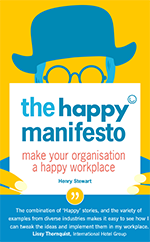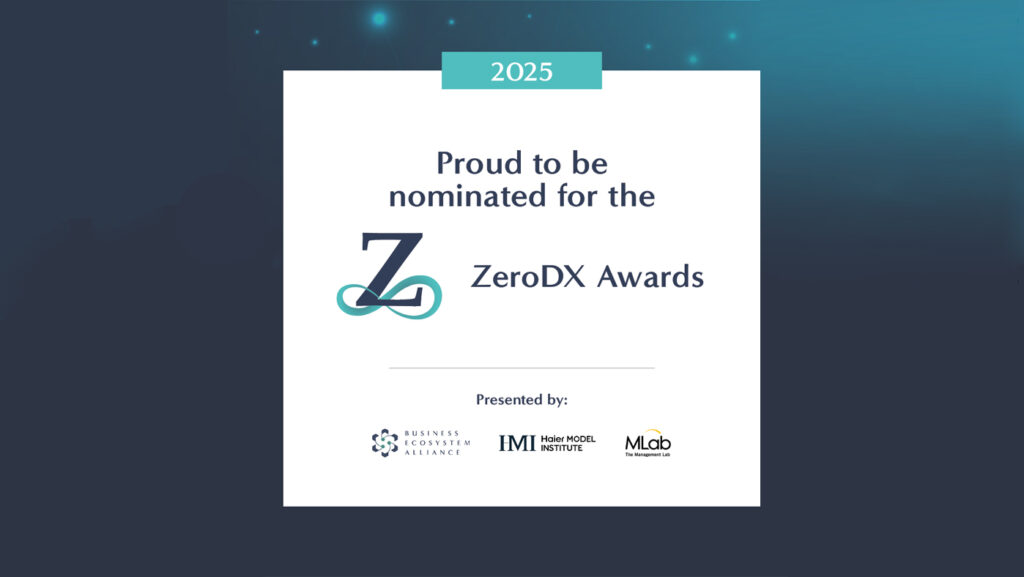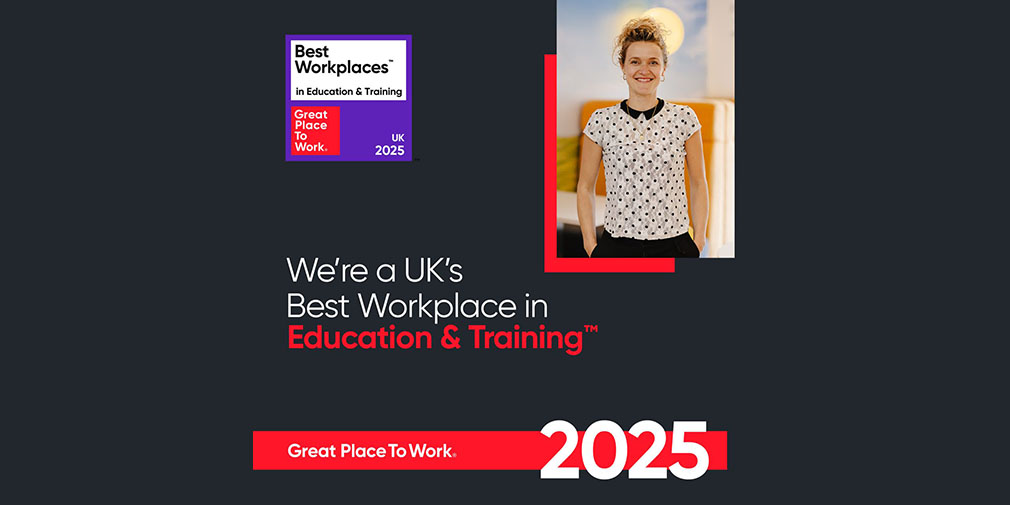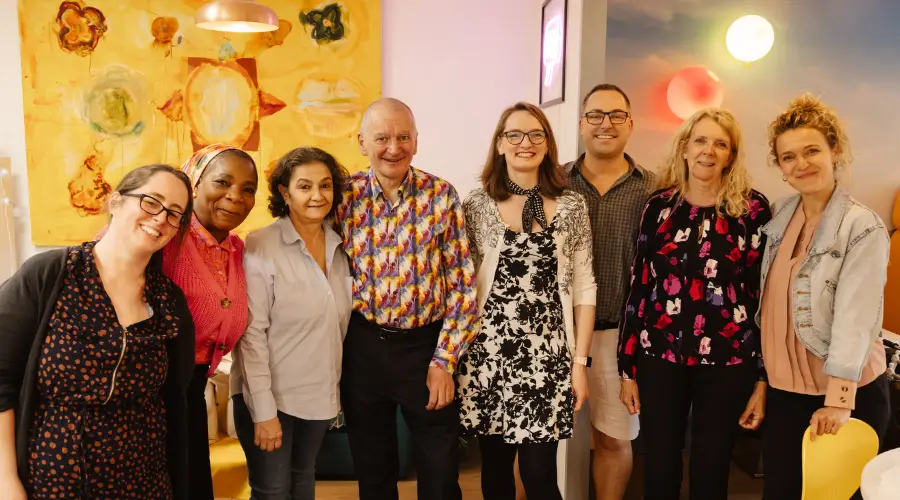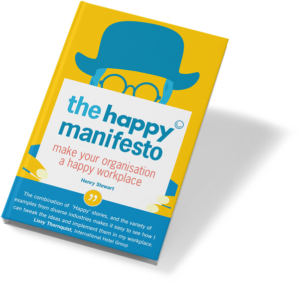Maureen: And there we go! So we have another amazing speaker whose name is Helen Sanderson. Helen was inspired by the Dutch company, a name I really can’t pronounce but I’ll have a go… Buurtzorg?
[Henry corrects pronunciation]
Maureen: There we go! Thank you Henry.
Helen set up Wellbeing Teams in the UK and won ‘outstanding’ on her first CQC inspection. Through an approach based on really patient-focused and self-managing teams. She’s going to be talking about Confirmation Practices. So let’s welcome Helen Sanderson! Clap and wave!
Helen: Thank you very much, I’m delighted to be here and I have a short amount of time to share with you what we’ve been trying and learning about Confirmation Practices. In the next almost 10 minutes I want to share why they’re important, what they are and how to use them; and I’m going to share 4 different types with you: Team agreements, roles, meetings and development. And finally I’ll give you 5 ways to mess them up, based on personal experience!
Let’s start with why I use them: I started my career as an occupational therapist, and I can see there’s quite a few people here from the NHS, and I used to get 6 weekly supervision from my boss who was a senior OT. I orientated all of my actions and everything I said in my supervision meetings to try and impress her because I knew that my relationship with her would be significant with regards to how well I did in my career. And I was really focused on compliance but now I use Confirmation Practices with my team and my focus is on responsibility, it’s on reflection: ‘how am I doing?’ in relation to my role and it’s also on ‘how can I keep improving?’.
For me, Confirmation Practices has changed my approach from compliance to responsibility and changed my relationship with the person I perceived to be in power over me to one that’s much more of a peer relationship with my team.
On to what they are. They were developed by Andy Brogan at Easier Inc and they are simple routines for systematic reflective practice. At its simplest level it’s a table with 4 columns and you give yourself a score. I want to share with you 4 ways that we can use them in organisations and share with you some of my experiences using them.
This is the first one. If you’re a fan of Brené Brown, and I am, Brené talks about clear being kind and one of the ways we can do this, particularly in self managing organisations, organisations that want to really pay attention to the culture of the organisation, is to put together a team agreement. A team agreement is ‘how do we want to show up together?’ ‘how do we want to be together?’ I have a bullet journal and a printed out copy of that team agreement that sits inside my bullet journal and looks like this. We developed our team agreements 4 years ago and review them every 4 months and we use Confirmation Practices as a way to review them.
You see that my first statement is that ‘we choose courage over comfort and do what we believe is right over what is easy’ and we ask for ‘feedback to help us develop and grow’.
So this is what it looks like in Confirmation Practices: this is my Confirmation Practice around my team agreement, we restate them as individual statements rather than collective statements. As you can see my first one is ‘I am confident that I am choosing courage over comfort, I’m doing what I believe is right not what’s easy’ and ‘I’m confident that I’m asking for feedback to help me grow and develop’ and then the next thing you do is to give yourself a score between 1 and 5: 5 being I’m doing this absolutely the best way I possibly can, absolutely nailing it, one is I’m barely starting. And then I have 6 statements here, 6 confirmation statements that come directly from our team agreements and, as I said, just taken directly into this table, and then I just spend some time giving myself my score of 1 to 5 for each of them. I then choose either the lowest score or the one that I’m most bothered about to decide what I intend to do over the next two weeks. And as you can see here the one I gave myself the lowest score from was ‘I’m confident that I’m asking feedback to help me grow and develop’ and why I gave myself that score was because I hadn’t asked for feedback within the last month and in our team we put the responsibility on ourselves to ask for the feedback not on other people to give it to us. So my intention was to ask somebody for feedback each week. In our team we do our individual Confirmation Practices on our team agreements first and then we share scores to see collectively what is the lowest score in our team. And what we found was that none of us had got higher than 2 in giving each other feedback. So then we asked what we wanted to do individually around that, in asking for feedback, and what did we want to do collectively. We use Slack as a team, I know many organisations use Teams, and what we do after every Confirmation Practice is we post in an ‘I will’ column what we’re going to do as a result. For me: I was going to post on ‘Friday Failure’ which is something we have in our team where we share failures and what we’ve learnt from them in each week, and I’m going to ask for feedback each week, however hard this feels. And you can see what my colleague Michelle was committing to and Ben and some other team members. When we recognised that none of us were doing a good job in asking for feedback we decided that we would make it a metric in our team meetings; so every team meeting now I get asked if I’ve asked for feedback that week, don’t have to make excuses, don’t explain, it’s just a check or no check. But for me that’s like a Weight Watchers principal, I’m focused much more on asking for feedback each week if I know that my colleagues are going to ask me how I’ve done at the end of the week.
So that’s Confirmation Practices number one. Number two is role-based Confirmation Practice and, as Maureen said in our introduction, we were rated ‘outstanding’ in our recent inspection by the CQC -the Care Quality Commission- and actually got ‘outstanding’ for well led. The CQC expects people to be well supported and we use Confirmation Practices as a way of demonstrating that.
In our teams we have a coach, and that’s Michelle to the left, instead of a manager and Becky and Michelle here are both buddies which means they have a role for coaching and supporting each other and this is what their Confirmation Practices look like. It’s in relation to their role and what we’ve also done is link it to values. So if you’re wondering how you can put your organisation’s values into practice, linking them to confirmation statements is one way of doing that. Every two weeks teams will meet together in their team meetings and the buddies would sit next to each other; they would come having already given themselves a score and then they talk to each other about the score that they’ve given; so, as you can see, the statement is ‘I am confident. I am always providing compassionate person-centred safe care’ and Becky would give herself a score out of 5 and Michelle would have a conversation with her about why she is giving herself that score and what she wants to do. Therefore you can do Confirmation Practices on ‘how you want to be together’, team agreements, or what your role is within the organisation. And then the third way is meetings. This is something you can do in the last 10 to 15 minutes of a meeting as a checkout practice. You have a list of statements, and I’ll show you another example in a minute. Our effectiveness, our ability to challenge each other, is this meeting meeting my needs? You ask everybody to rate 1 to 5 on those statements, you note their responses and make them public, as you can see on number 4 there, that might be on a flipchart or on a whiteboard and then you discuss those together. And what that does is it discovers surface tensions and anything in the room that feels undiscussable. And here’s another example of how people have used this in a table. First one: ‘we are working on the right things’, so if you are thinking about your team right now what score would you give yourself for ‘we are working on the right things?’ ‘We are working on the right number of things?’ ‘We are working on things in the right way?’ ‘My needs are being met’ and ‘We are making the most of our strengths’. The slides will all be available to you on Fuse, so I don’t expect you to copy this all down, but this is a really tangible way that you could start using Confirmation Practices in your meetings for the 10 to 15 minutes at the end of your meetings.
And then finally: development. Confirmation Practices or using them in your one-to-ones. The thing I’m personally working on at the moment, my growing edge, is asking for help each week, and it sounds like a simple thing but I’m really invested in looking competent and I’m working on my vulnerability. For me it’s ‘am I able to ask for help each week?’ and this is Henry’s it’s ‘I am productive and effective at work?’. And what this means is I have a colleague and once a month I will have a conversation with them and I have a longer list of confirmation statements but this is my priority one: at the moment I’m asking for help each week, I’ll give myself a score between 1 and 5 and I’ll talk about what I want to do next. ‘I’m productive and effective at work’ is a conversation that one of Henry’s colleagues will have with him and Henry will share his score and have a conversation about it as well.
I think this is next-generation supervision. This is next generation performance management. I think this is moving from compliance with goals etc -not that goals aren’t important- but concentrating on how you want to develop as a person and then score yourself on that, your reflections on it, and to ask for feedback from other people as well.
This is how you can mess them up if you want to introduce them. One is you simply give statements to people; they are most powerful when they are co-created, either as team agreements or as role statements or in meetings. You can mess them up by keeping score: for example saying ‘Helen your scores over the last 6 months have been poor’ or blaming people for low scores. You want people to feel confident and comfortable scoring themselves low because a low score leads to action. One thing we learned in the Wellbeing Team the very first time we introduced them was that 3 colleagues gave themselves scores of 5 on everything and we realised we hadn’t clarified what 5 looked like. So then we then did some work to be really clear about what good looks like so that people could do a better job of scoring themselves between 1 to 5. They are most effective when you coach people, and we’ve got a coaching card we can give you to support you to do that, and why do you do them if you’re not going to link them to action? So that’s how you can mess them up.
Thank you for listening, if you’re interested in knowing more come and find me: I’m Helen Sanderson on LinkedIn and if you give me your email I can send you the coaching card or anything else that might be interesting and we’re starting a Confirmation Practices programme in Autumn and I’m also speaking on Henry’s level 7 in a few weeks time, if you’re on that I’d love to see you there and we can talk about it a bit more.
Henry, I’m 30 seconds over the 9 minutes you gave me but I tried to make it 9 minutes that will really be actionable for everybody here. Thank you very much.
Henry: Perfect. So I think the question you were going to ask was: ‘What would your Confirmation Practice be?’ Is that correct?
Helen: Yes. So if you had one statement like Henry’s or like mine -I’m asking for help- what would the Confirmation Practice statement be for you? Something that you are committed to doing that will make a difference to how you work, what would your statement be?
Henry: Here’s one getting straight in there, Helen, how did you compose the list of team agreements?
Helen: We looked at what was working and what was not working for us as a team, and on the basis of what was working we said: what would we need to agree to make it more likely that what was working would continue? And what wasn’t working, and what we could improve in, we then turned into statements as well. And Renee Brand has done some fantastic research into how important it is to get clear about how you want to be together, and these kinds of statements are a way to do it; but, a bit like ground rules on a course, you can do great statements and nobody refers to them ever again so they don’t make any difference. But that’s how we did it: what’s working, what’s not working for our team and what agreements we wanted to make to make it more likely to do that. And the team was more than welcome to that but as you can see we’ve become braver every time we’ve reviewed them and tweaked them; so teams often start with things that they feel more comfortable with and then become braver as we put them into practice.
Henry: Have a look in a chat Helen. What do you think of the Confirmation Practices in the chat?
Helen: These are great. So things like ‘I would have a statement about difficult conversations’, Isabel, you’d probably put it something like ‘I am having courageous conversations every week’, and then you could score yourself from 1 to 5 on whether you’re doing that. That’s probably how you would frame a question like that. Adele has put: ‘I am making an impact’, that’s fantastic and then you need to define what making an impact means to you. Great Confirmation Practices also have metrics attached to them, so if part of your role was around generating income you might say: ‘I’m making an impact’ and the metrics we would use to see that would be ‘I am generating £3,000 a month’ which might be your target. ‘I am x y and z’ so then defining impact would be really helpful.
‘Only having half of my weekdays booked with meetings’ Martin, you might want to be a bit broader than that which might be: ‘I am using my time well’. That might be one of the ways you’re using your time well but there might be other ways as well that would be indicators of you using your time. And one of the big differences between Confirmation Practices and other things is there are not goals, they are practices that you would be doing. So Rachel has given a great one there: ‘I am making time to reflect each day’, and again that’s fairly simple to give yourself a score between 1 to 5 on. Henry, you know I could talk forever on these but I’m relying on you to make me stop.
Henry: Ok I’ll get one more wee question in. Were any key members resistant and how did you overcome that?
Helen: In Wellbeing Teams? No, because it was part of the culture that we introduced right from the beginning. I’m working with another team at the moment and one person in particular is struggling to do this and thinks that they are doing it already. I think the key thing is having the conversation about ‘What’s wrong with performance management at the moment?’. If we can make Confirmation Practices an answer to something that isn’t working well I think it’s much easier for people to see the value of it, as opposed to ‘let’s introduce this crazy wonderful new thing we’ve heard about’. How can you make it part of the problem we are trying to solve? Having an open conversation about ‘What’s wrong with current performance management?’ might be a good place to start.
Henry: This is basically a contrast to those annual performance management appraisals, yes?
Helen: Absolutely, absolutely. It’s been transformational for me, personally, and I really encourage people to have a go.
Henry: How do you make sure that these questionnaires don’t feel like more admin for managers, coaches and buddies?
Helen: I think if you say we are replacing traditional performance management or one to ones with this, so you are swapping like-for-like. One way to introduce it is saying instead of going in and having our usual one to ones, let’s generate together a list of statements that reflect your role; and what matters in your role, and what really matters. Let’s do that and then in our meeting together you score yourself and then we can have a conversation about the scores.
So if you are replacing one practice for another I think that makes it easier for people to see that you’re not just creating more admin, you’re not adding any more on; we are replacing something you’re doing.
Henry: And here’s an interesting one. Is there any method or practice that you implemented that recognizably improved staff happiness?
Helen: I think these do. This isn’t evidence but what it does is it enables us to have difficult conversations before they become big problems. With team-based confirmation agreements it stops the ‘moaning around the corner’ about it. So if one of your statements is ‘we take responsibility for our team tasks’ and one of your team tasks is washing mugs after each other, if you’ve got Confirmation Practices and then you’re reviewing that, you’re then able to say ‘tell me how often you did the mugs last month?’. That gives you an opportunity to have the conversation, whereas what tends to happen is people moan about each other about not washing the mugs. It enables us to have direct conversations with people about something that might be difficult. It replaces traditional KPIs in lots of ways but some of my colleagues are using Confirmation Practices for individuals and then having OKRs on a quarterly basis, which act as team development targets. So I think they work alongside that but they definitely replace traditional performance management approaches.
Henry: The key thought is you decide yourself what your rating is, not your manager.
Helen: Yes. Absolutely. I think it’s ideal that you can create the statements with your team and/or your manager and then you reflect and say how you think you’re doing rather than your manager just telling you how they think you’re doing. But it’s also an opportunity for your manager to say ‘I’m really curious you have given yourself a score of 3, Helen. That feels like a 4 to me. Let’s look at what the data tells us, or tell me more about why you scored yourself a 3.’ It then enables us to have a different kind of conversation.
Henry: Thank you so much Helen for that. I listened to this on Lisa’s Leadermorphosis podcast and I thought it was fabulous. And as I say we have started to do it at Happy at the moment.
Helen: Thank you.
Henry: So a big round of applause for Helen.
[Applause]
Helen: Thank you and I’ve put my email in the chat if anyone wants to get in touch. Thanks very much.
